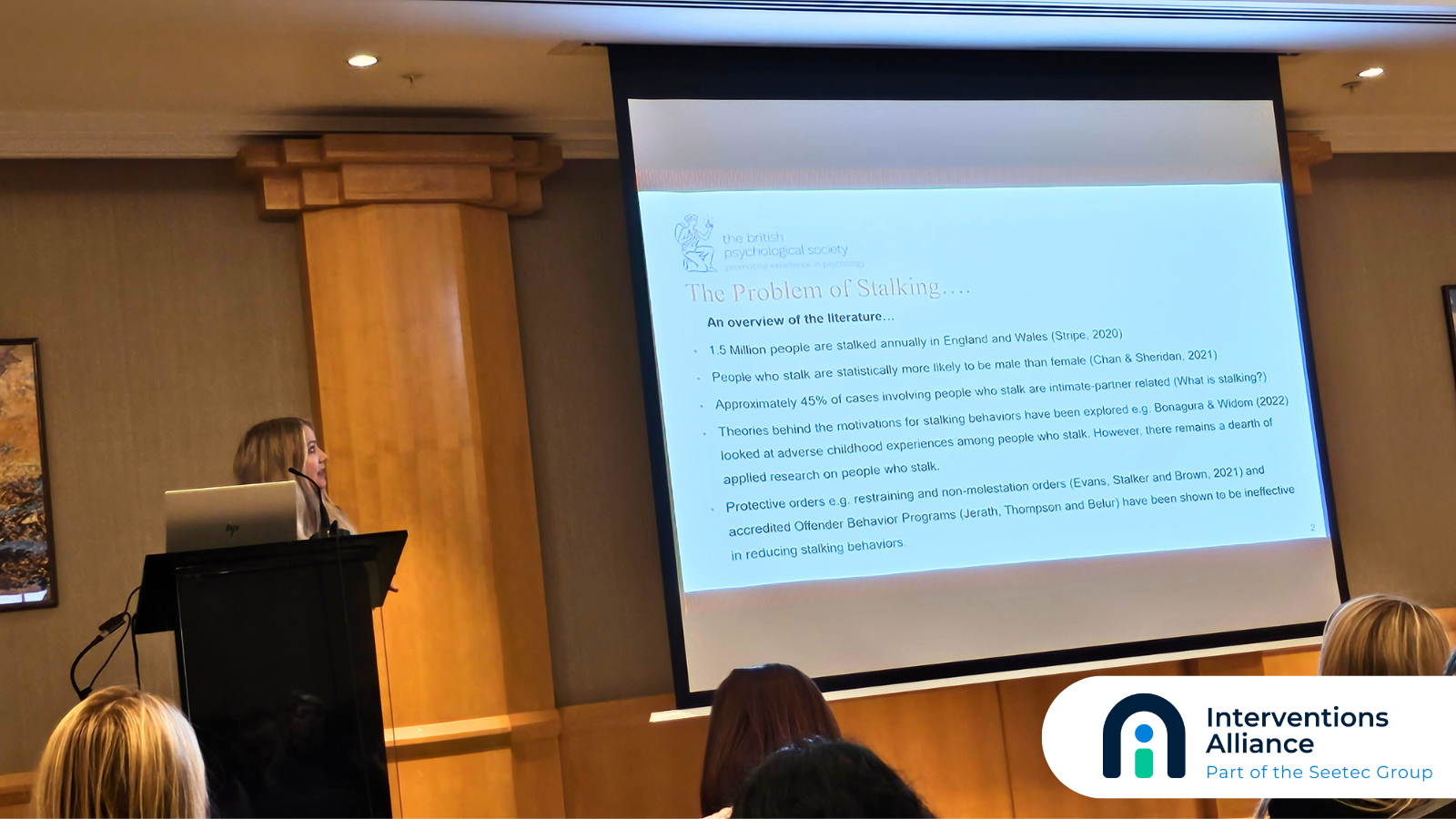In November last year, Melissa Gimson, one of our Behavioural Change Practitioners, presented her MSc Forensic Psychology dissertation at the annual British Psychology Society Division of Forensic Psychology conference in Belfast.
Her research project comprised the first service evaluation of Interventions Alliance’s Compulsive, Obsessive, Behaviour Intervention (COBI), and explored the impact this has on individuals demonstrating stalking behaviour, as well as on service staff who deliver the programme.
In addition to presenting her project to delegates, Melissa also represented Interventions Alliance at a traditional Irish supper and took part in an Irish dance lesson from Olympic champions, along with colleagues from across the industry. Asked to summarise her experience Melissa said, “It was a wonderful opportunity for my own professional development and networking, but also to explore the wonderful city and traditions of Belfast”.
Brief Summary of Report
“Exploring the Impact of an Adapted DBT Intervention for Stalking Behaviours” aimed to broadly assess the Impact of Interventions Alliance’s COBI programme on both participants and delivery staff, using data from Interventions Alliance referrals and interviews with colleagues.
Furthermore, it provided a demographic narrative that speaks to who COBI participants are. It was concluded that participants in the COBI were more likely than not to be heterosexual males with female victims, who had experienced their own traumas, leading to difficulties in forming and letting go of relationships.
Participants were less likely than not to have a disability, but where one was present the sample suggested this was most likely to be related to a mental disorder, followed by Autism/ASD.
The most common relationship between participants and their victims was ex-intimate partners, but referrals also came in for individuals who had fixated on neighbours, professionals, public figures and social media contacts.
Regarding the second part of the study focused on service staff, 11 salient themes emerged from the analysis of interview transcripts. These were:
- Accessibility of intervention
- Desire for research
- Language used
- Perpetrators as vulnerable
- Recognition of positive outcomes
- Resource limitations
- Responsivity
- Skills for a life worth living
- Staff wellbeing
- Support for the programme model
- Use of technological devices in stalking
If you would like to review the full paper, poster presentation and/or accompanying audio, please email Melissa at melissa.gimson@interventionsalliance.com to request this.


